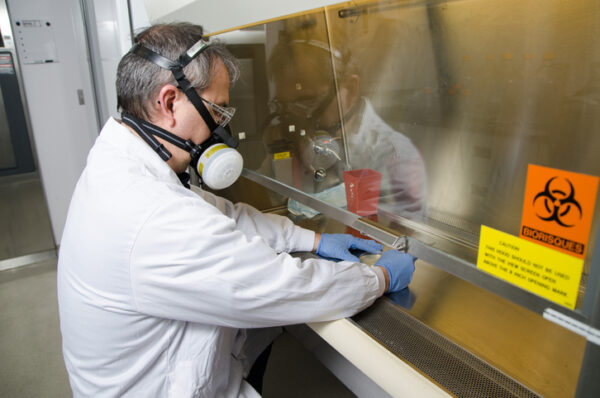European Chemical Rules and Regulations: Part 2
This article is part two of a two-part series. Read part one about the impact of regulations and rule changes here.
When it comes to European chemical rules, complying with regulations can bring benefits to manufacturers. Protecting public health and the environment is an important consideration for stakeholders.
By demonstrating their products are safe and environmentally friendly, manufacturers can enhance their reputation and gain a competitive advantage in the marketplace. Additionally, the regulations can help streamline supply chains and reduce risks associated with using hazardous chemicals. Technology and chemical registers can streamline your auditing process.

Importantly, auditors need to verify companies and organizations are following the rules. Therefore, auditing is critical to ensure compliance. Audits can help companies to identify areas of non-compliance, gaps in their processes, and opportunities for improvement. By conducting audits regularly, companies can identify and address potential compliance issues before they become more serious and improve their overall operations.
Relatedly, OSHA’s Hazard Communication Standard (HCS) (aka the “Right to Know”) was developed to ensure workers have access to the information they need to work safely around hazardous chemicals.
Non-Compliance Consequences
Non-compliance with the rules can have serious consequences for companies and organizations. It is critical companies ensure they are complying with regulations and address potential compliance issues. Non-compliance consequences may include:
- Fines or penalties: These can be substantial. The fine amount will depend on the severity of the violation and the country where the violation occurred.
- Legal action: Companies may be subject to legal action, including lawsuits or enforcement actions by regulatory authorities.
- Product recalls: Companies may be required to recall their products from the market, which can be costly and damaging to their reputation.
- Loss of market access: Companies may lose access to the EU market, which can have a significant impact on their business.
- Reputational damage: Non-compliance with regulations can damage a company’s reputation, both in the eyes of customers and stakeholders. This can lead to lost business and reduced market share.
Preparation, awareness, and having the right technological tools in place will ensure your organization can seamlessly report on ESG amidst new EU regulatory revisions. This way, those global companies operating in the EU—whether you are headquartered there or have an office presence there—can effectively and efficiently report information as needed, when needed.
How Technology Can Improve the Situation
Companies need chemical registers—databases that contain information about the chemicals used in a company’s products—to comply with regulations. To comply, manufacturers and importers must provide detailed information about what chemicals they use in their products.
For example, this is why the HCS helps to ensure employers with hazardous chemicals in their workplaces can work together to make sure the containers these chemicals are found in have the proper labels.
Maintaining a chemical register can help companies comply with regulations, manage risks, improve supply chain transparency, and enhance product development. Chemical registers are an important tool for companies to ensure compliance with regulations and manage risks associated with the use of chemicals in their products.
Some benefits are having a centralized accessible register of chemicals, having a link to a chemical register with other modules, and enforcing company policy about how chemicals should and should not be used.
Other benefits—such as those found in SAI360’s chemical register—include an easily accessible and updated catalog so you can track the chemicals and hazardous materials that are used and stored in your workplace and a module that is pre-configured with a workflow. Here, companies and organizations can maintain centralized, up-to-date catalogs regarding how workers use, handle, and store chemicals within a workplace.
Chemical registers also have Environmental, Social, and Governance (ESG) benefits for companies, including reduced environmental impact, better risk management, improved product stewardship, and compliance with regulations. By creating and maintaining a chemical register, companies can enhance their environmental performance and demonstrate their commitment to responsible chemical management.
Chemical management compliance demands the right integrated tools that include regulatory obligation management to help you with these unpredictable rule changes.
Altogether, SAI360’s software technology provides companies with the tools and capabilities they need to manage these rule changes around chemical, regulatory frameworks, ESG frameworks, and streamline chemical management.
SAI360 helps companies protect the environment, health, and safety of workforces through a single software platform with built-in best practices to help you streamline chemical management, manage unpredictable chemical rule changes, and other regulatory obligations.
For more information about our chemical register module, visit https://www.sai360.com/solutions/ehs.
And read part one of our blog series about the impact of regulations and rule changes here.



